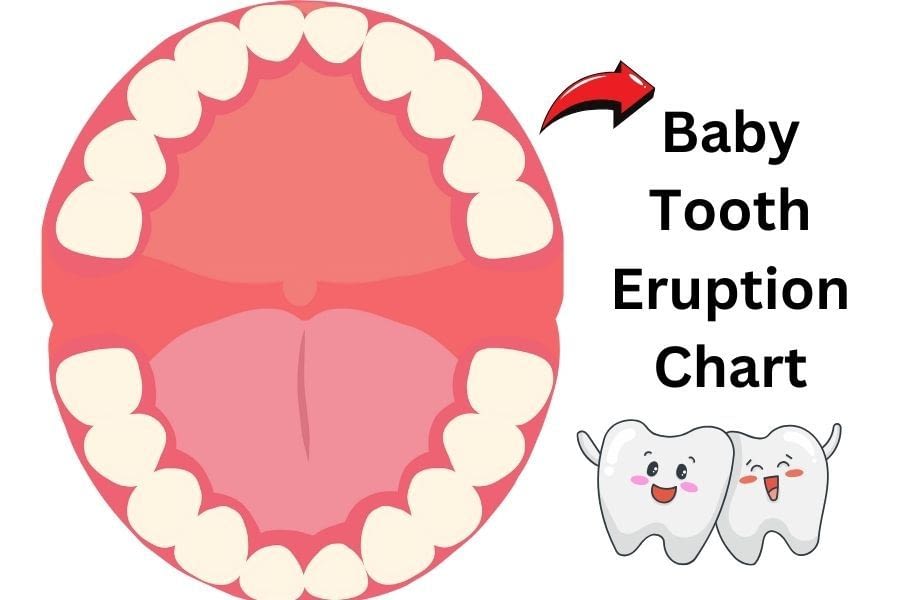Calling your baby’s name and not receiving a response can be concerning for any parent. It is natural to want your little one to acknowledge and respond when you call out to them. However, it’s important to understand that there can be various reasons why your baby may not respond to their name. In this article, I will explore the reasons why my baby ignores me when I call his name sometimes, possible signs of autism, developmental delays, and action steps for parents.
Read Also: How To Get An Eyelash Out Of A Baby’s Eye
When Do Babies Know Their Name?
One of the earliest social behaviours that our babies learn is responding to their names. Babies typically start to recognize their name around 7 to 9 months of age. By this age, they should be able to recognize their name and turn their head or make some indication that they have heard you.
By their first birthday, it is expected that children consistently recognize their names. They are also beginning to understand that certain sounds and words are associated with specific things, people, or activities.
Importance Of Baby Responding To Their Name
A baby’s ability to respond to their name is a crucial marker of their cognitive and language development. It signifies that they are starting to understand the fundamentals of communication and their role in it.
This response indicates that a baby has begun to acquire receptive language skills, which is the ability to interpret and understand spoken language. It also shows that they are developing selective attention, and essential skills for learning and interacting with the world around them. Moreover, it forms the foundation for successful social interactions, as responding to one’s name is one of the first steps towards engaging in back-and-forth communication.
The ability of the child to respond to their name is a crucial skill that forms a strong foundation for the development of various other skills. These include:
- Attention development: When a baby responds to their name, it shows their ability to focus and initiate communication.
- Language comprehension: Understanding and acquiring a wide range of information.
- Expressive language: The baby’s ability to communicate their wishes and needs to others.
- Social interactions: Engaging with others and building relationships.
- Self-regulation and safety: Developing an awareness of personal safety based on the frequency of being called by their name.
Mastering the skill of responding to their name sets the stage for holistic development in babies.

Why does my baby ignore me when I call his name?
Babies ignoring their names being called can be a part of their normal development process. Before a certain age, infants may simply not recognize or understand the concept of a ‘name’. Usually, by their first birthday, many babies begin to respond to their names.
However, each baby develops at their own pace. It’s also possible they’re deeply engaged with their surroundings and are concentrating so much on exploring their environment that they tune out other stimuli.
Always remember, a baby not responding to their name is not necessarily a sign of disrespect, defiance, or any cognitive issues. It’s just a part of their growth and exploration of the world.
When should I worry about my baby not responding to his name?
It’s natural to worry my baby ignores me when I call his name but as every child is different parents need to have patience. And let them achieve their developmental milestones at their own pace.
However, if your child has not started responding to their name by the time they are 12 months old, or if they are showing other signs of a possible delay in developmental milestones, it may be time to discuss your concerns with a healthcare professional.
Two major reasons behind your child’s Ignorance
Possible signs of autism
One possible reason why your baby may ignore you when you call his name is because of autism. Autism is a developmental disorder that affects social interaction and communication skills.
Babies with autism may exhibit certain behaviours, such as not responding to their names, lack of social interaction, avoiding eye contact, or having delayed language skills. They may have limited babbling and may struggle to communicate or use gestures to express their needs.
If my one year old ignores me when I call his name, is this an early sign of autism? Well, if your one-year-old consistently does not respond to their name and you also suspect such difficulty in your baby, it is important to consult for evaluation from a speech-language pathologist for a professional evaluation.
Autism Spectrum Disorder (ASD) is characterized by a range of symptoms and the severity can vary greatly from one person to another. Early intervention can significantly improve the outcome in children with autism, so discuss any concerns with a developmental specialist.
Developmental delays
Developmental delays can manifest in various ways, and not responding to their name can be one of the signs. It is important to consider other developmental milestones as well, such as motor skills, cognitive abilities, and social skills.
If you notice significant delays in multiple areas of development, it is recommended to seek professional help to understand and address the underlying causes. As a parent, you can take action steps to help your baby respond to their name and encourage their overall development.
Identify the other reasons why your toddler not responding to name, but not autistic
In the journey of parenting, it’s quite common to encounter moments when your baby seems to be ignoring you. However, this doesn’t necessarily indicate a problem. There can be multiple reasons behind this behavior that are part of normal child development:
Focused on Something Else
Often babies ignore their name being called because they’re deeply absorbed in an activity or fascinated by a new sight. Remember, everything is new and interesting to a baby, so it’s easy for them to become engrossed in exploring their environment.
Developing Selective Hearing
Selective hearing is a normal part of a child’s development and can start as early as infancy. Your baby might be learning to exercise control over what they pay attention to, which can sometimes mean ignoring you when you call their name.
Still Learning Their Name
Babies often start to recognize their names between 5 to 7 months of age. If your baby is younger than this, they might not yet realize that the sound you’re making is linked to them. If they’re older but still not responding, it may just be that they need a little more time.
Just Not In the Mood
Just like adults, babies have moods. There may be times when they’re just not interested in interacting. They could be tired, cranky, hungry, or need a diaper change. If a 3 year old not responding to name, pay attention to these subtle cues can help you better understand why your baby is ignoring you.
Difficulty Hearing
If your baby seems to consistently ignore you, it is worth considering the possibility that they may have trouble hearing. Ear infections and other issues can affect a child’s ability to hear clearly and respond to sounds, especially when you notice your toddler not responding to name, but not autistic. Consult with your paediatrician if you have any concerns about your baby’s hearing.
Testing Boundaries
As babies get older and more mobile, they may start to test their boundaries and see what they can get away with. Ignoring your calls for attention could be part of this testing, so it’s important to set clear boundaries and consistently enforce them.

Learning Nonverbal Communication
Babies also communicate through nonverbal cues, such as facial expressions, body language, and eye contact. As they continue to develop, they may rely more on these forms of communication and less on verbal cues like their name being called.
Strong Connection with Another Caregiver
If your baby spends time with other caregivers, such as grandparents or daycare providers, they may have developed a strong bond with them. In this case, it’s natural for them to be more attentive to those caregivers and may ignore you when they’re around.
Needs More Stimulation
Some babies need more stimulation and interaction than others. If your baby seems uninterested in responding to their name, try incorporating different types of play or activities that can capture their attention. It’s also important to give enough quality time and attention to them.
Understand Your Baby’s Developmental Milestones
Understanding your baby’s developmental milestones is crucial to ensure they’re growing healthily and holistically. These milestones are divided into four key categories:
- Motor development involves both gross and fine motor skills. Gross motor skills include sitting, standing, and walking, while fine motor skills involve using hands and fingers for tasks like grabbing, clapping, and holding.
- Language development begins with cooing and babbling and progresses to full words and sentences. Babies usually start to recognize their names between 5 to 7 months of age and can say a few basic words by their first birthday.
- Cognitive Development involves learning and problem-solving skills. This includes understanding cause and effect, recognizing familiar faces, and exploring the surroundings.
- Social and Emotional Development relates to the ability to interact with others and manage emotions. This includes smiling, laughing, showing anxiety or distress, and exhibiting attachment to primary caregivers.
Not all babies reach these milestones at the same time, so it’s essential to have patience and not to compare your child’s pace of development to others.
What do you need to observe in the first few months of baby?
Responding to their name is an important developmental milestone that showcases your baby’s growing language and cognitive abilities. It signifies their ability to recognize and respond to their own name, which is crucial for communication and social interaction.
In the first few months of your baby’s life, there are several key developmental milestones and behaviors to observe. Such as if you are wondering why your 6 month old not responding to name, check for these early milestones.
Zero to Six months
- Feeding Patterns: Keep track of your baby’s eating habits. They should eat every 2 to 3 hours, and if breastfeeding, they should latch on correctly.
- Sleeping Habits: Babies typically sleep 16 to 17 hours a day, although this may be broken up into shorter periods.
- Physical Milestones: Look for steady head control and the beginning of rolling over from their stomach to their back.
- Sensory Development: Your baby should start to follow objects with their eyes and reach for things. They will also react to loud sounds.
- Emotional and Social Development: At around two months, babies usually start to smile at the sound of your voice or the sight of your face.
- Crying and Comfort: Healthy babies cry to communicate their needs, and you should be able to comfort them most of the time.
- Growth: Your baby’s weight, length, and head circumference should increase steadily.
Six to Nine Months
During the period of six to nine months, your baby will start revealing more about their personality and will begin to interact more with the people and world around them. Check these marks if you notice your 8 month old not responding to name:
- Motor Development: By this stage, most babies can roll over in both directions. They start sitting without support and may begin crawling or even attempt to stand. Some babies might also develop a pincer grasp, which allows them to pick up small objects using their thumb and forefinger.
- Cognitive Development: Babies become increasingly aware of their environment. They begin to understand object permanence, meaning they realize that things continue to exist even when out of sight.
- Language Development: Babies start to babble using consonants, and they may respond to simple spoken requests. Some babies might start saying “mama” or “dada.”
- Social and Emotional Development: Babies often show anxiety towards strangers and become clingy towards caregivers. They also understand how to express different emotions and begin to enjoy playing games like “peek-a-boo.”
Nine to Twelve Months
Between nine to twelve months, your baby will likely become more mobile and expressive, showing significant growth in several areas. Check these marks if you find your 9 month old not responding to name:
- Motor Development: Babies at this stage often start to stand while holding onto furniture and might take their first steps. They can use the pincer grasp to pick up small objects and might start to show hand dominance.
- Cognitive Development: Your baby will begin to explore objects in many ways, such as shaking, banging, and throwing. They understand using ordinary items (like a brush or spoon) and can find hidden objects easily.
- Language Development: Babies will start to respond to simple verbal commands and may understand words like “no” and “bye-bye”. They also might begin to mimic sounds and gestures and use a few single words.
- Social and Emotional Development: Babies often show preferences for certain people and toys, have favourite games, and start to exhibit fear in some situations. They might also show anxiety when separated from a favourite caregiver.
7 month old not responding to name, how to improve?
Promoting name recognition in your 7-month-old requires consistent and engaging efforts. If your baby is not responding to their name, try these four basic things. As a parent, there are several steps you can take to encourage your baby to respond to their name and support their overall development.
- First and foremost, ensure that the environment is calm and quiet to minimize distractions for your baby.
- Utilize your baby’s name frequently and in a cheerful tone during interactions and playtime.
- Introduce your baby to different people and objects by naming them, which will help familiarize your child with various names.
- When calling your baby’s name, you can establish eye contact and use positive body language. This can help in capturing their attention and encouraging a response.
Importance of early intervention: What to do if 12 month old not responding to name?
Early intervention is crucial when it comes to addressing developmental delays or potential signs of autism. The earlier the intervention, the better the outcomes. If you suspect that your baby is not progressing according to typical developmental milestones, seek professional help as soon as possible. Early intervention services can provide the necessary support and resources to help your child reach their full potential.
5 Tips for helping babies learn to respond to their names
If your 12-month-old doesn’t respond to their name, there’s no need for immediate alarm. However, it’s essential to keep a watchful eye. Start by observing their overall behavior:
- Consistent Use of the Baby’s Name: The more often you use your baby’s name, the faster they’ll recognize and respond to it. Use their name during feedings, playtime, bath time, and other daily activities. It’s also beneficial to speak their name in a clear, affectionate tone to establish a positive association.
- Eye Contact and Face-to-Face Interaction: Make sure to maintain eye contact when you’re talking to your baby and try to be on their level. This face-to-face interaction helps them focus on you and your words, making it easier for them to recognize and respond to their name.
- Positive Reinforcement: Whenever your baby responds to their name, make sure to praise them. This can be a simple smile, clapping, or providing a favorite toy. This positive reinforcement will encourage them to respond more frequently.
- Limit Background Noise: Try to limit background noise when you’re teaching your baby to respond to their name. Turn off the TV, music or any other distractions to ensure they can clearly hear and concentrate on their name.
- Play the ‘Name Game’: Incorporate the baby’s name into games. For example, while playing with toys, you could say, “Where is [baby’s name] teddy bear?” This makes learning their name a fun and interactive experience.
What if toddler doesn’t respond to name?
Toddlers should start grasping a few simple directions such as “no,” “come here,” and “give it to me.” They should also begin recognizing and naming familiar objects and people like “bottle,” “mom,” “dad,” “tummy,” “eyes,” “banana,” and more.
As they reach 24 months, children gradually comprehend more complex instructions, learn body parts, and expand their vocabulary with various nouns and action words.
If a toddler is not responding to their name, it may cause concern for parents. Here are some steps to take if your toddler isn’t responding to their name:
Step 1: Eliminate Distractions
Create a calm environment for your toddler, free from distractions like TV, loud music, or bustling siblings.
Step 2: Decrease Name Usage
Ironically, using a child’s name too frequently can sometimes make them less likely to respond to it. If you habitually call their name without any follow-up interaction, they may start to ignore it, associating the sound with no particular outcome. Try to only use your toddler’s name when you need their attention or when you’re directly interacting with them. This can help them associate their name with the need to respond or engage in some way.
Step 3: Utilize Visual and Auditory Signals
Combine the use of your toddler’s name with both visual and auditory signals. For instance, when you call their name, also use a hand signal or a particular sound that your toddler can associate with their name. This multi-sensory approach can help reinforce their name recognition.
Step 4: Reinforce Positive Behavior
When your toddler does respond to their name, be sure to reinforce this positive behavior with praise, a hug, or a small reward. This positive reinforcement can incentivize them to respond more consistently in the future.
Step 5: Be Close and in Front
Ensure that you are positioned nearby and directly in front of your toddler when calling their name. This direct, face-to-face interaction enhances your child’s focus and ensures they can clearly see and hear you. It further empowers your child to read your facial expressions and lip movements, reinforcing their understanding and response to their name.
Step 6: Alter Your Tone of Voice
Your tone of voice can significantly influence your toddler’s response. Try altering your tone when you call your toddler’s name, making it more engaging and playful. You could also use a sing-song or exaggerated tone to catch their attention. Remember, it’s not just what you say, but how you say it that can make all the difference.
Step 7: Change the Volume of Your Voice
While tone plays a crucial role in attracting your toddler’s attention, the volume of your voice can be equally significant. Be mindful about not always calling your toddler in a loud voice as they may get accustomed to it and start ignoring softer tones. Mix it up – sometimes call them in a soft voice, and at other times, use a louder voice.
This variability in volume can make your toddler more alert and attentive to their name, as they won’t know what to expect. However, always ensure your voice maintains a positive and pleasant tone, regardless of the volume, to keep the experience positive for your toddler.
Step 8: Play engaging games
Engage in interactive activities such as peek-a-boo or clapping games, where your child’s response is required to continue the game. This will aid in their familiarity with responding.
Gradually introduce simple commands like “wave your hand” or “give me a hug” while demonstrating the action, allowing your baby to learn how to respond to instructions given in a specific tone of voice.
Read Also: Can Almond Milk Cause Constipation In Toddlers? (Expert Advice)
Conclusion: My baby ignores me when I call his name
Do you ever feel like getting your baby’s attention is a lost cause? Your cries of their name never seem to be enough, and all attempts at catching that precious eye contact are futile. You’re not alone – it can happen to the best parents!
After understanding these possible reasons why your baby is ignoring you when you call their name, you can better navigate this common parenting challenge. Remember to be patient and consistent, and most importantly, enjoy bonding with your little ones in whatever way they prefer.
Keep nurturing that special relationship with your precious little miracle! So don’t give up hope, keep trying and remain calm – soon enough, your baby will be responding to their name and showering you with smiles. So, cherish these moments while they last and continue to support your baby’s communication development as they grow.
1 Visit today





